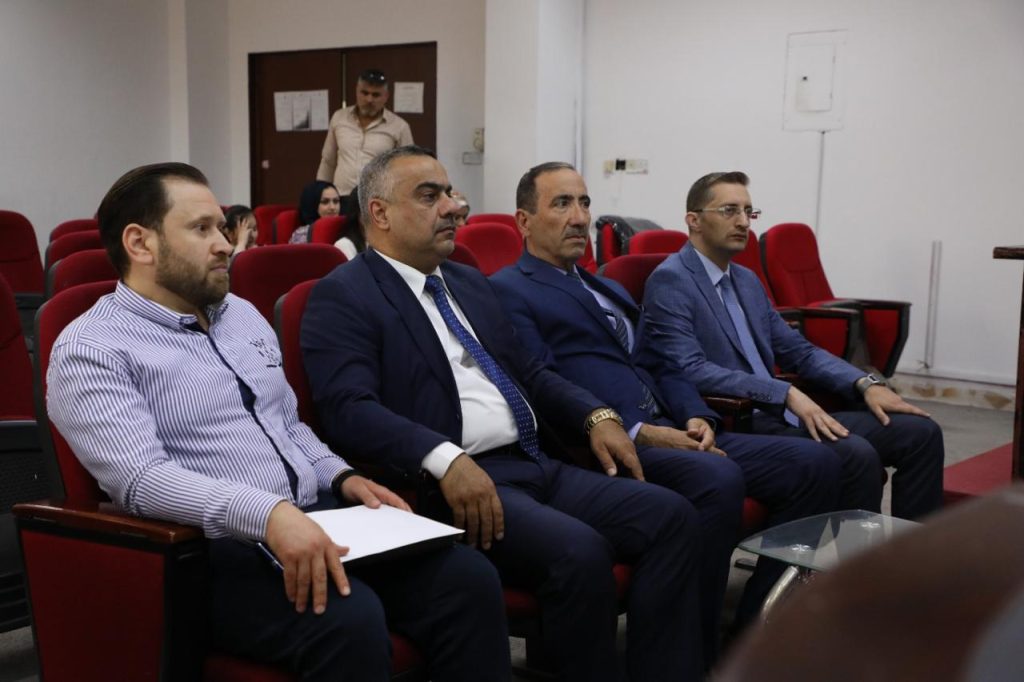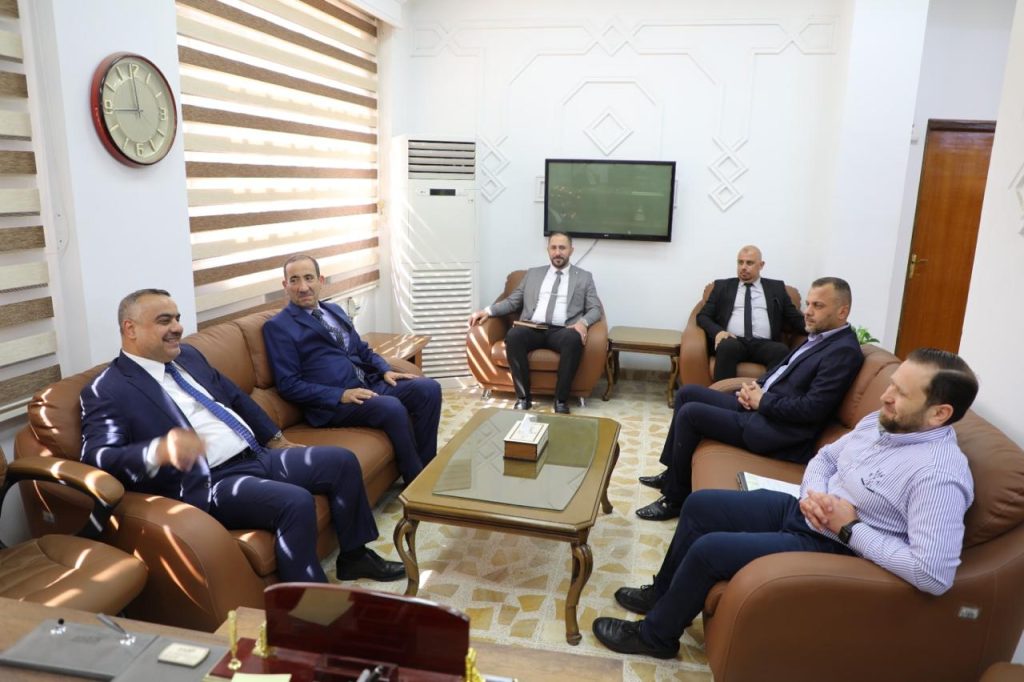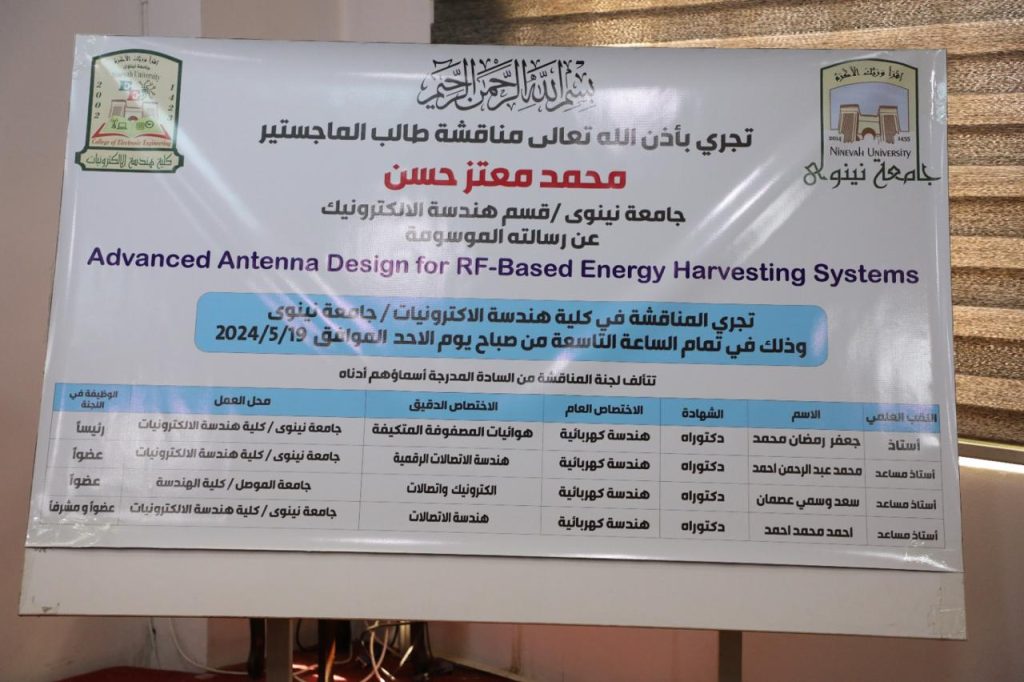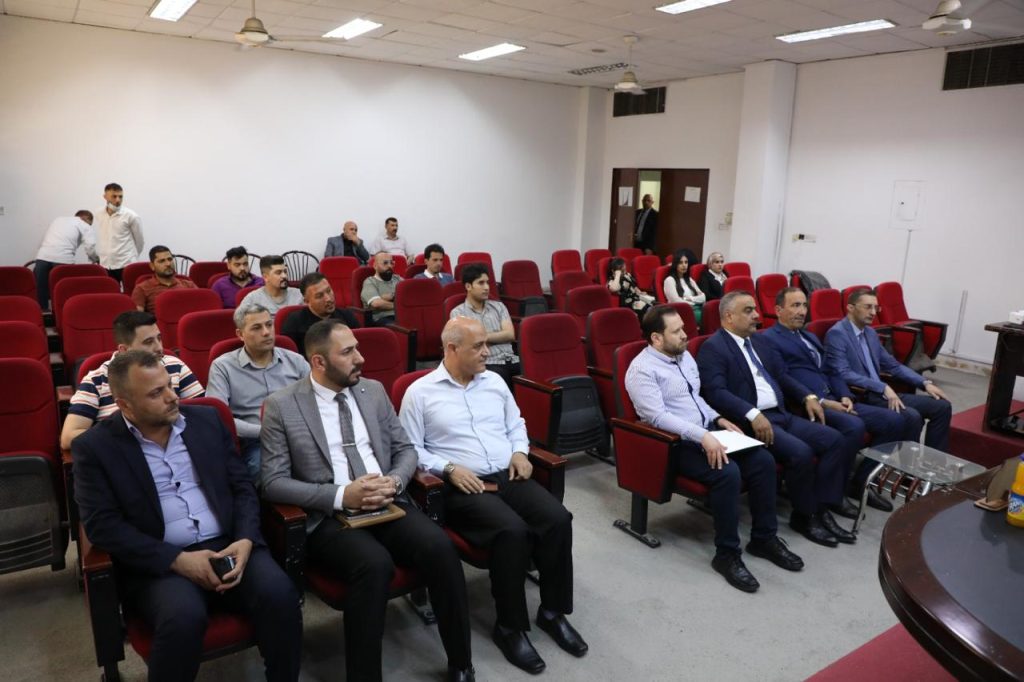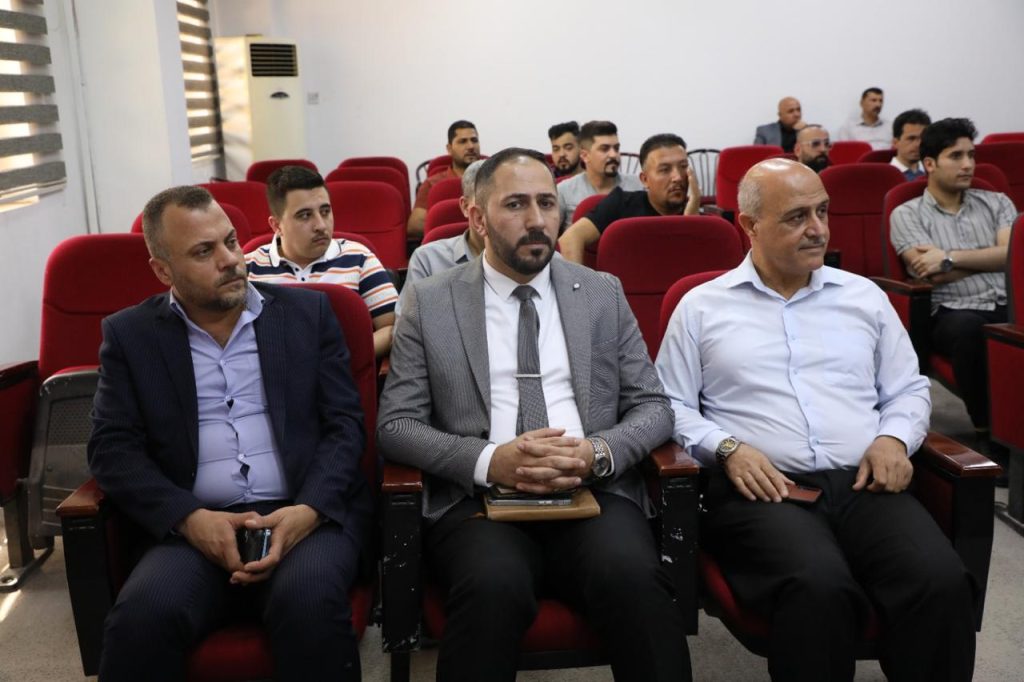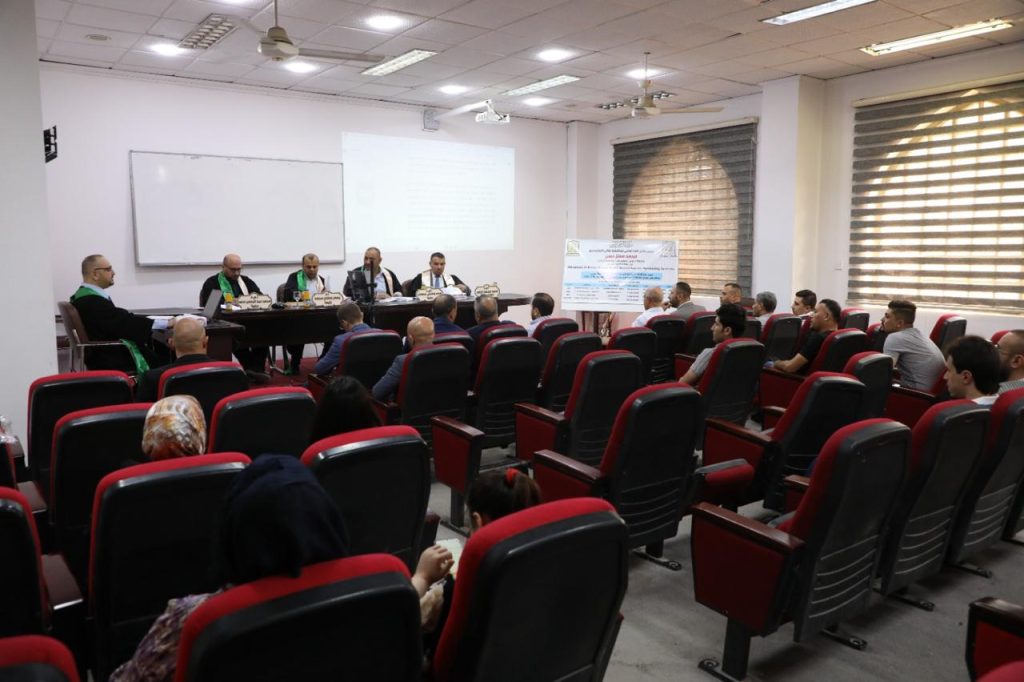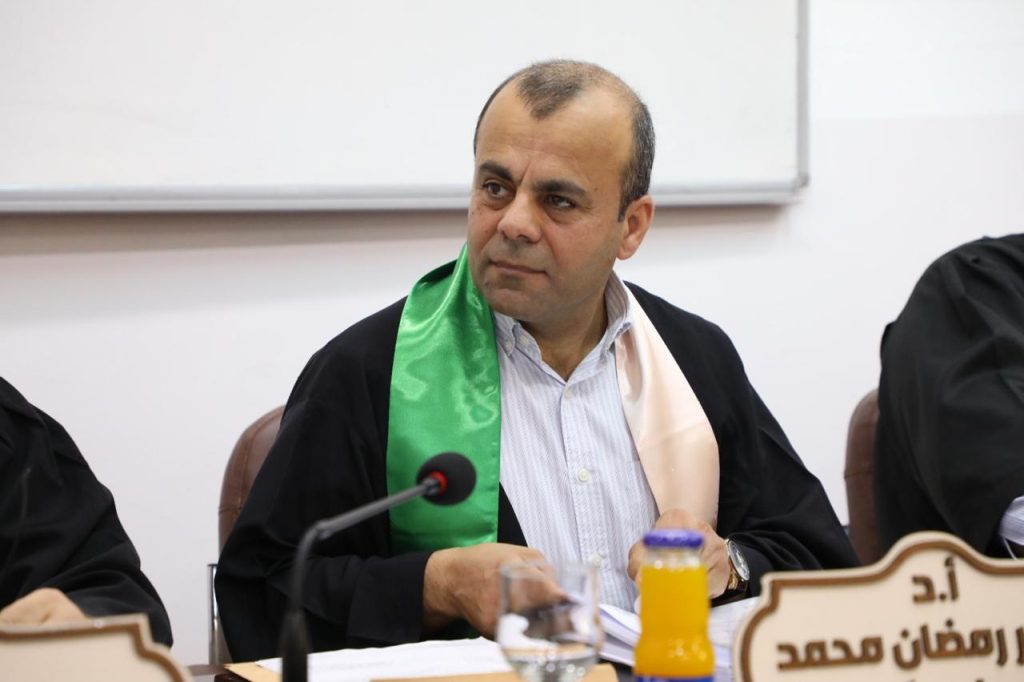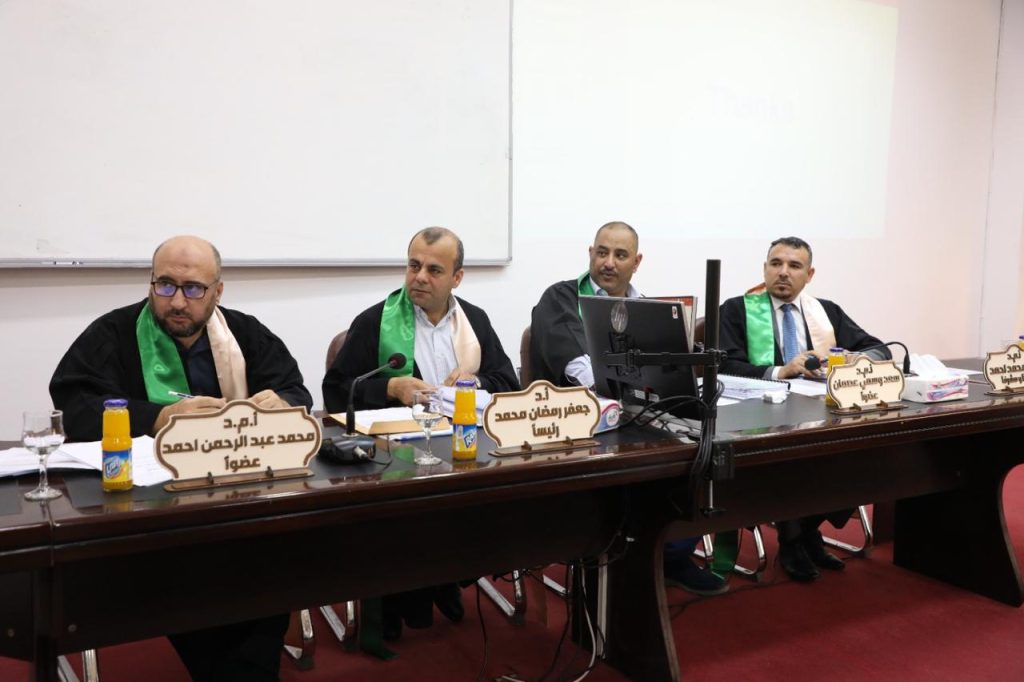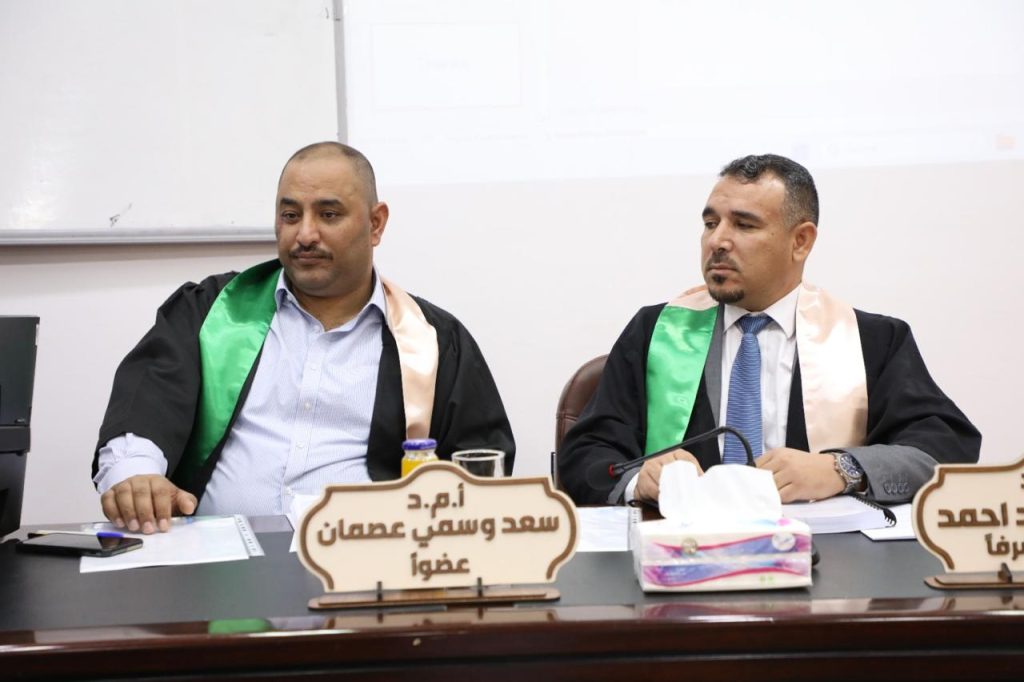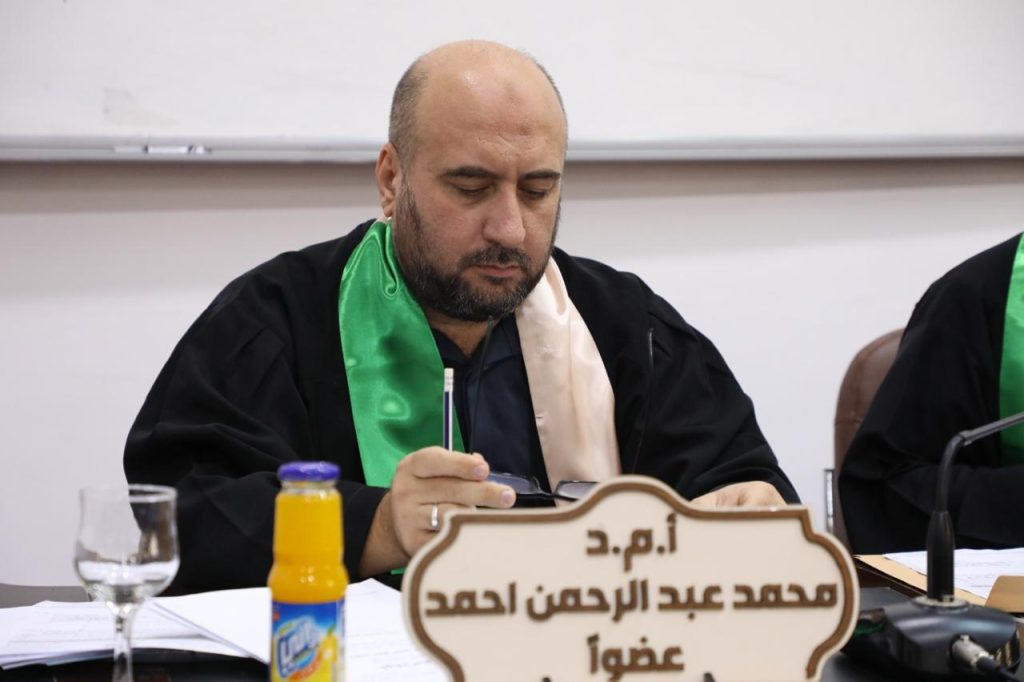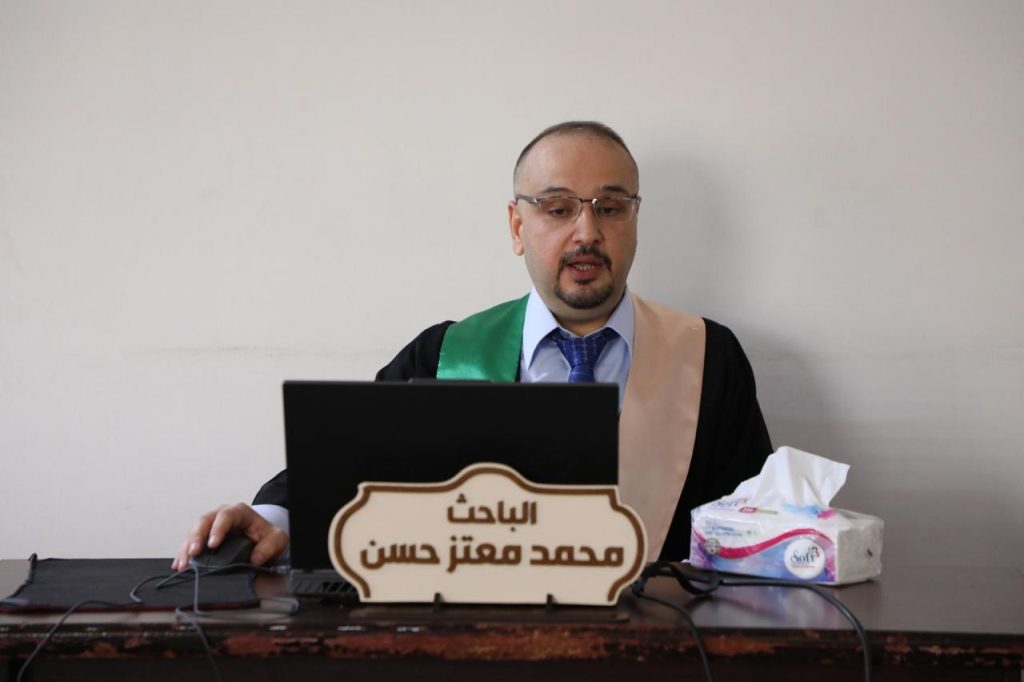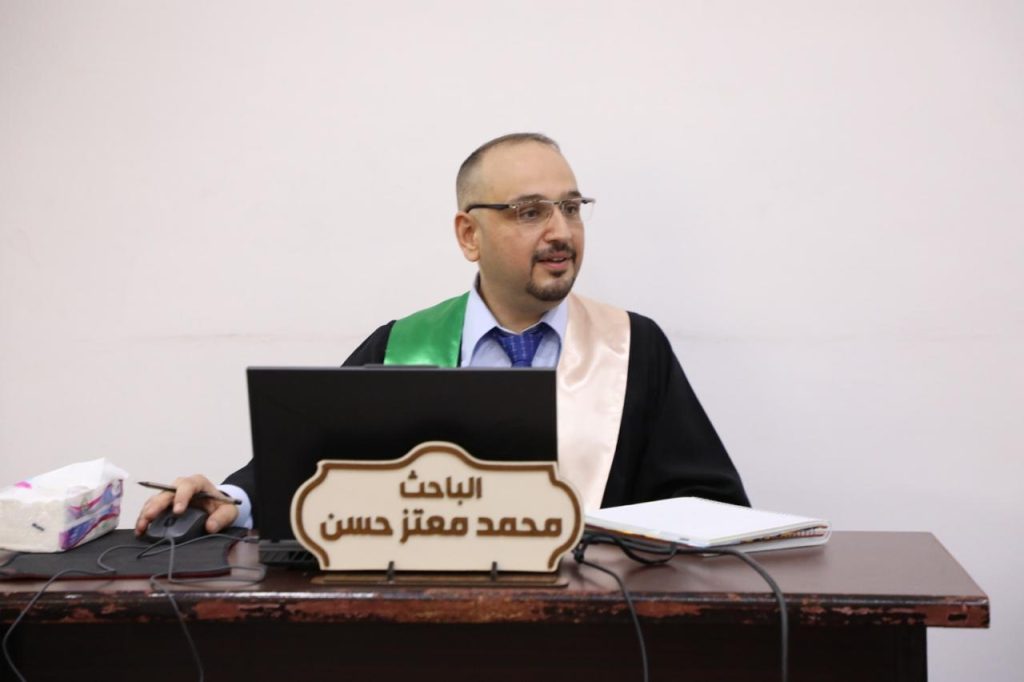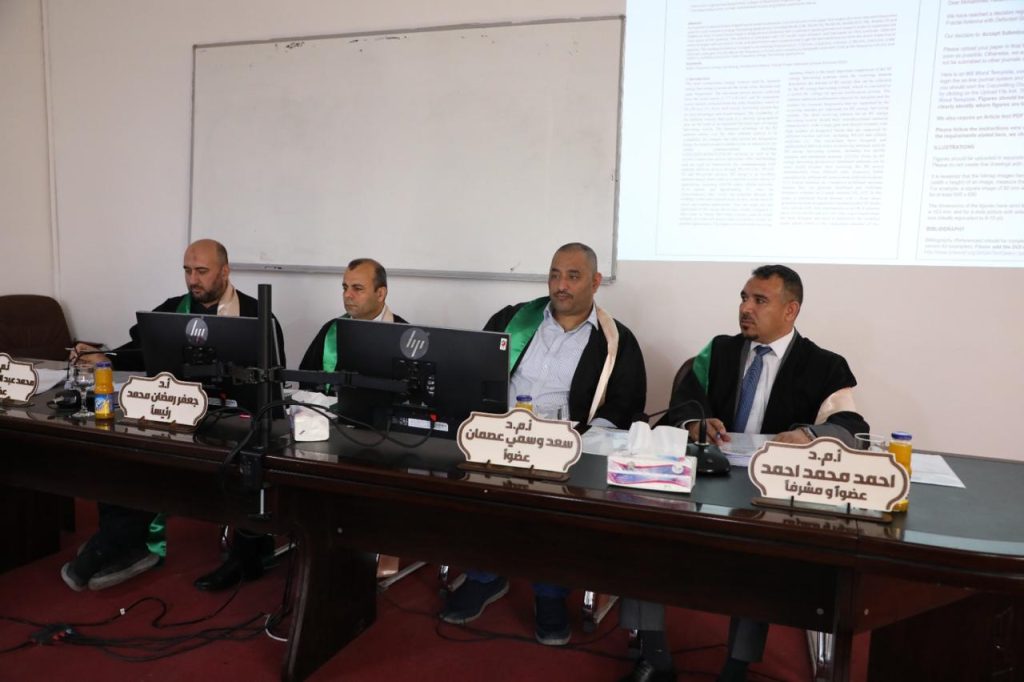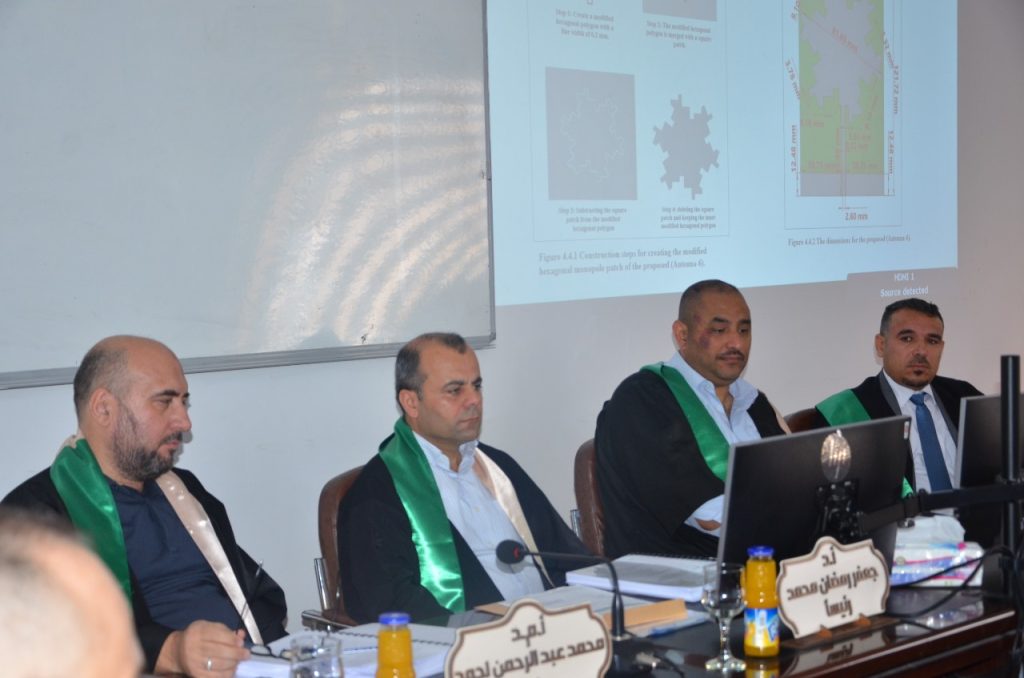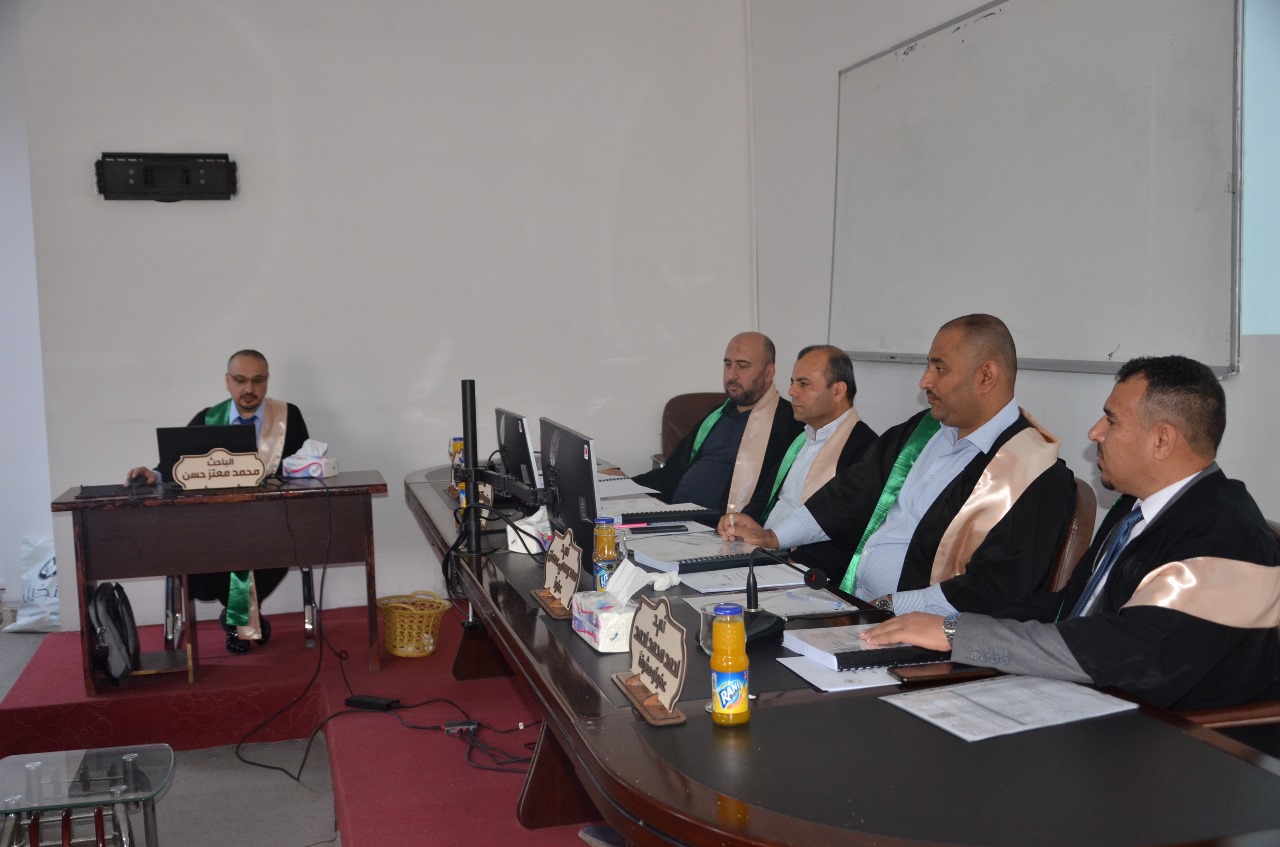On Sunday, the College of Electronics Engineering at the University of Nineveh discussed the master’s thesis of student Mohammad Moataz Hassan, titled (Advanced Antenna Design for RF Energy Harvesting Systems).
The discussion was attended by the university president, Professor Dr. Osama Al-Mashhadani, along with the dean of the college, Prof. Dr. Khalid Khalil Mohammed, the scientific assistant dean of the college, Assistant Prof. Dr. Bilal Al-Layla, and a group of the college’s faculty members.
The thesis addressed new designs for multiband antennas in addition to broadband antennas, which were designed and optimized to target frequencies crucial for RF energy harvesting systems, including Wireless Local Area Networks (WLAN) and mobile cellular frequencies.
The thesis aimed to provide design steps for new researchers in this field by carefully designing and tuning several multiband and broadband antennas that target the most in-demand frequency bands used by energy harvesting applications, including WLAN-2.4G, WLAN-5G, WiMAX networks, and mobile cellular services. Furthermore, the thesis illustrates the possible applications of the proposed antennas, emphasizing that the receiving antenna is a key component of RF energy harvesting systems, including wireless sensor networks and Internet of Things (IoT) technology.
The measurement results showed good agreement with the simulation results, and all proposed antennas achieved high performance, making them suitable receiving antennas for RF energy harvesting systems. Two of the proposed antennas in this thesis were published in reputable international journals within Scopus and Elsevier databases.
The discussion committee consisted of:
- Prof. Dr. Jaafar Ramadan Mohammed (Chair).
- Assistant Prof. Dr. Mohammad Abdulrahman Ahmed (Member).
- Assistant Prof. Dr. Saad Wasmi Othman (Member).
- Assistant Prof. Dr. Ahmed Mohammed Ahmed (Member and Supervisor).
We wish the researcher and the discussion committee continued success and prosperity.
